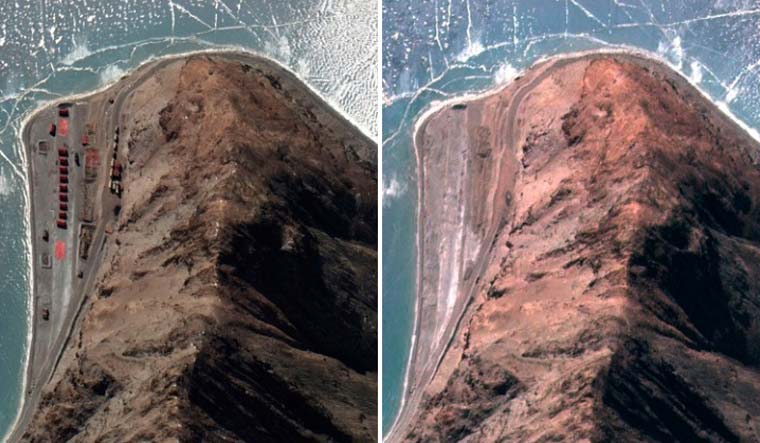Following the tenth round of China-India Corps Commander-level meeting, both India and China have appraised the smooth competition of disengagement of frontline troops in the Pangong Tso (lake) area, noting that it was a significant step forward that provided a good basis for resolution of other remaining issues along the Line of Actual Control in the Western sector.
In a press release, the Ministry of Defence said both sides had candid and in-depth exchange of views on other issues along the LAC in the Western Sector. “The two sides agreed to follow the important consensus of their state leaders, continue their communication and dialogue, stabilize and control the situation on the ground, push for a mutually acceptable resolution of the remaining issues in a steady and orderly manner, so as to jointly maintain peace and tranquillity in the border areas,” the release said.
Defence Minister Rajnath Singh also said that disengagement process in Eastern Ladakh had been completed, during his visit to Salem in Tamil Nadu on Sunday.
Hitting out at the opposition parties for their criticism of the disengagement and its terms, Singh said India will not allow any "unilateral action" on its border and will pay any cost to thwart such attempts, he told the Bharatiya Janata Yuva Morcha's state conference in Salem.
"After nine rounds of military and diplomatic dialogue, the disengagement process is complete. But unfortunately the Congress is doubting Indian army's bravery...isn't it insulting to the soldiers who do the supreme sacrifice," he said.
20 Indian army personnel were killed in the Galwan Valley clash with Chinese troops last year. China formally admitted that four of its soldiers were killed in the clash—its first public acknowledgement of deaths on its side since the standoff eight months ago—while General V.K. Singh had earlier China lost more than double the number of soldiers India did.
The government under the leadership of Prime Minister Narendra Modi "has never compromised with country's unity, territorial integrity and sovereignty" and it shall never do so, he asserted.
On February 11, Defence Minister Rajnath Singh announced in Parliament that India and China reached an agreement on disengagement in the North and South banks of Pangong lake that mandates both sides to "cease" forward deployment of troops in a "phased, coordinated and verifiable" manner.
Under the agreement, he said, China will pull back its troops to the east of Finger 8 areas in the northern bank of Pangong lake while the Indian personnel will be based at their permanent base at Dhan Singh Thapa Post near Finger 3 in the region.
Similar action would take place on the southern bank of the lake as well, he said.
The sources said troops of both sides have retreated to positions that were agreed upon.
The disengagement process began on February 10.
The Indian delegation at Saturday's talks was being led by Lt Gen PGK Menon, the Commander of the Leh-based 14 Corps. The Chinese side was to be headed by Maj Gen Liu Lin, the commander of the South Xinjiang military district of the People's Liberation Army (PLA).
With inputs from PTI




